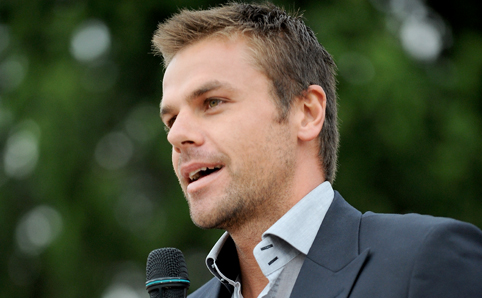 |
Ryk Neethling
- Photo: Gerhard Steenkamp |
Festive, colourful and spirited – this was how the official opening of our newly upgraded swimming pool looked. Olympic swimmer Ryk Neethling, guest of honour at the event, rendered further glamour to the event when he encouraged Kovsies in his opening speech.
“I feel that this pool can be a great institution of learning, just like this university, because the lessons you learn here you can take into your job; lessons of hard work, dedication and never giving up,” said Ryk.
As a result of the money (R4,6 million) that was appropriated by the National Lotto at the end of 2009, the swimming pool now qualifies as an international competition bath (50m in length) with heating. Overflows were also installed at both ends of the bath. Starting blocks and lane ropes were also installed.
Part of the money is also used for research, which will throw light on the nutritional habits and incidents that cause swimming injuries.
According to Mr Mickey Gordon, Head: Corporate Affairs, Institutional Advancement and Sport, it is strategically important to invest in a high-quality facility for the advancement of swimming at our university. “The university wants to become a centre of excellence for Swimming South Africa,” he said.